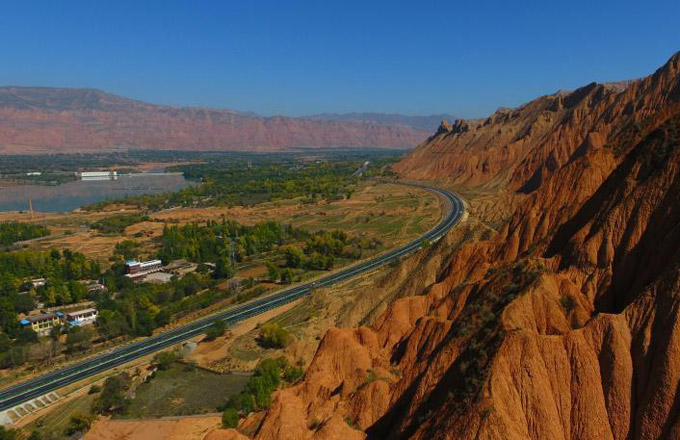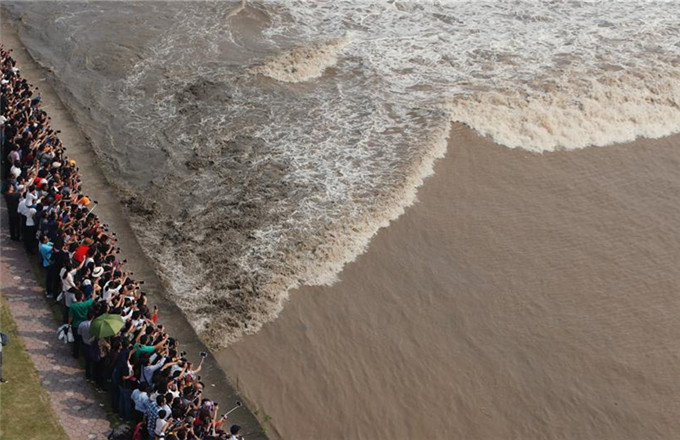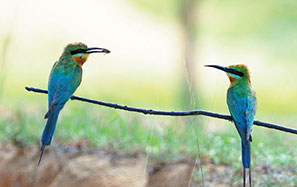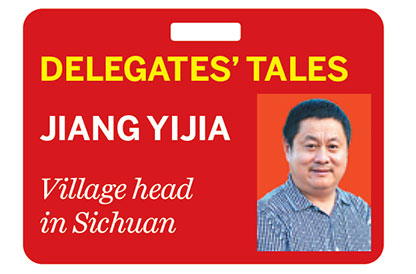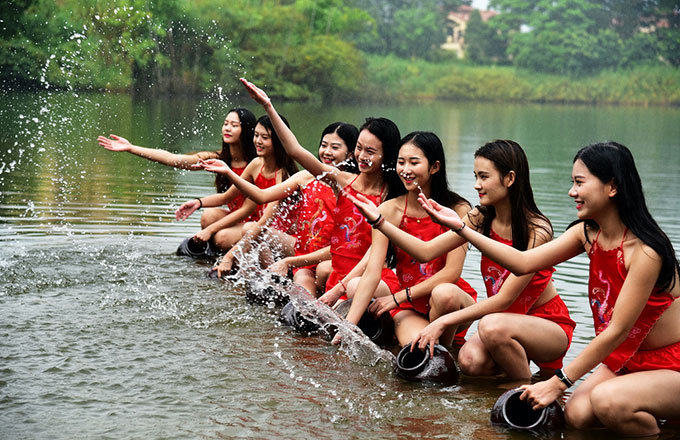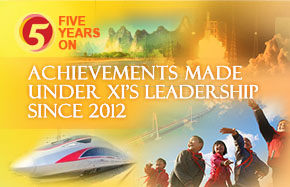Constitution of the Communist Party of China
Chapter III
Central Organizations of the Party
Article 18. The National Congress of the Party is held once every five years and convened by the Central Committee. It may be convened before the normally scheduled date if the Central Committee deems it necessary or if more than one third of the organizations at the provincial level so request. Except under extraordinary circumstances, the Congress may not be postponed.
The number of delegates to the National Congress of the Party and the procedure governing their election shall be determined by the Central Committee.
Article 19. The functions and powers of the National Congress of the Party are as follows:
1) To hear and examine the reports of the Central Committee;
2) To hear and examine the reports of the Central Commission for Discipline Inspection;
3) To discuss and decide on major questions concerning the Party;
4) To revise the Constitution of the Party;
5) To elect the Central Committee; and
6) To elect the Central Commission for Discipline Inspection.
Article 20. The powers and functions of the National Conference of the Party are as follows: to discuss and make decisions on major questions; and to replace members and elect additional members of the Central Committee and the Central Commission for Discipline Inspection. The number of members and alternate members of the Central Committee to be replaced or newly elected shall not exceed one fifth of the respective totals of members and alternate members of the Central Committee elected by the National Congress of the Party.
Article 21. The Central Committee of the Party is elected for a term of five years. However, when the next National Congress is convened before or after its normally scheduled date, the term shall be correspondingly shortened or extended. Members and alternate members of the Central Committee must have a Party standing of five years or more. The number of members and alternate members of the Central Committee shall be determined by the National Congress. Vacancies on the Central Committee shall be filled by its alternate members in the order of the number of votes by which they were elected.
The Central Committee of the Party meets in plenary session at least once a year, and such sessions are convened by its Political Bureau. The Political Bureau reports its work to these sessions and accepts their oversight.
When the National Congress is not in session, the Central Committee carries out its resolutions, directs the entire work of the Party and represents the Communist Party of China in its external relations.
Article 22. The Political Bureau, the Standing Committee of the Political Bureau and the General Secretary of the Central Committee of the Party are elected by the Central Committee in plenary session. The General Secretary of the Central Committee must be a member of the Standing Committee of the Political Bureau.
When the Central Committee is not in session, the Political Bureau and its Standing Committee exercise the functions and powers of the Central Committee.
The Secretariat of the Central Committee is the working body of the Political Bureau of the Central Committee and its Standing Committee. The members of the Secretariat are nominated by the Standing Committee of the Political Bureau of the Central Committee and are subject to endorsement by the Central Committee in plenary session.
The General Secretary of the Central Committee is responsible for convening the meetings of the Political Bureau and its Standing Committee and presides over the work of the Secretariat.
The members of the Military Commission of the Central Committee are decided on by the Central Committee.
The central leading bodies and leaders elected by each Central Committee shall, when the next National Congress is in session, continue to preside over the Party's day-to-day work until the new central leading bodies and leaders are elected by the next Central Committee.
Article 23. Party organizations in the Chinese People's Liberation Army carry on their work in accordance with the instructions of the Central Committee. The political work organ of the Military Commission of the Central Committee is the General Political Department of the Chinese People's Liberation Army; the General Political Department directs Party and political work in the army. The organizational system and organs of the Party in the armed forces are prescribed by the Military Commission of the Central Committee.
Chapter IV
Local Organizations of the Party
Article 24. The Party congress of a province, autonomous region, municipality directly under the central government, city divided into districts, autonomous prefecture, county (banner), autonomous county, city not divided into districts, or municipal district is held once every five years.
Local Party congresses are convened by the Party committees at the corresponding levels. Under extraordinary circumstances, they may be held before or after their normally scheduled dates upon approval by the next higher Party committees.
The number of delegates to the local Party congresses at any level and the procedure governing their election are determined by the Party committees at the corresponding levels and should be reported to the next higher Party committees for approval.
Article 25. The functions and powers of the local Party congresses at all levels are as follows:
1) To hear and examine the reports of the Party committees at the corresponding levels;
2) To hear and examine the reports of the commissions for discipline inspection at the corresponding levels;
3) To discuss and adopt resolutions on major issues in the given areas; and
4) To elect the Party committees and commissions for discipline inspection at the corresponding levels.
Article 26. The Party committee of a province, autonomous region, municipality directly under the central government, city divided into districts, or autonomous prefecture is elected for a term of five years. The members and alternate members of such a committee must have a Party standing of five years or more.
The Party committee of a county (banner), autonomous county, city not divided into districts, or municipal district is elected for a term of five years. The members and alternate members of such a committee must have a Party standing of three years or more.
When local Party congresses at all levels are convened before or after their normally scheduled dates, the terms of the committees elected by the previous congresses shall be correspondingly shortened or extended.
The number of members and alternate members of the local Party committees at all levels shall be determined by the next higher committees. Vacancies on the local Party committees at all levels shall be filled by their alternate members in the order of the number of votes by which they were elected.
The local Party committees at all levels meet in plenary session at least twice a year.
The local Party committees at all levels shall, when the Party congresses of the given areas are not in session, carry out the directives of the next higher Party organizations and the resolutions of the Party congresses at the corresponding levels, direct work in their own areas and report on it to the next higher Party committees at regular intervals.
Article 27. The local Party committees at all levels elect, at their plenary sessions, their standing committees, secretaries and deputy secretaries and report the results to the higher Party committees for approval. The standing committees of the local Party committees at all levels exercise the functions and powers of local Party committees when the latter are not in session. They continue to handle the day-to-day work when the next Party congresses at their levels are in session, until the new standing committees are elected.
The standing committees of the local Party committees at all levels regularly report their work to plenary sessions of local Party committees and accept their oversight.
Article 28. A prefectural Party committee, or an organization analogous to it, is the representative organ dispatched by a provincial or an autonomous regional Party committee to a prefecture covering several counties, autonomous counties or cities. It exercises leadership over the work in the given prefecture as authorized by the provincial or autonomous regional Party committee.




